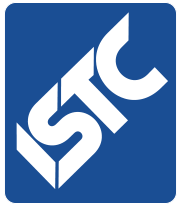The National Occupational Standards for Technical Communicators project was completed in 1999. The information on this page refers to that project.
Introduction and history
The only qualification previously available to technical communicators was the City and Guilds 5360, an academic qualification following the traditional method of classroom instruction and formal examinations. It was therefore not possible to demonstrate the competence of people who did exactly the same job, but who did not hold the formal academic qualification.
The desire to produce these Standards commenced in February 1996, when a small number of like-minded individuals foresaw the need to have a work-based qualification for their staff/colleagues. They instigated a meeting, consisting of representatives from industry, NVQ authorities and providers, consultants, and the Government. This resulted in funding being provided to conduct a nation-wide functional and occupational mapping of the discipline. This mapping exercise proved that a very large number of people are either full- or part-time technical communicators. This evidence persuaded the Government to provide further funding, to allow development of these standards.
Since then, a considerable amount of progress has been made towards achieving NVQs for Technical Communicators. This progress was made possible through the combined and concerted efforts of many people, from a wide spread of companies and therefore with diverse backgrounds. The driving force was a Steering Group of around ten people, consisting of practitioners (five of whom are ISTC members), the consultants (Leigh & Baron) and the Lead Body (The Publishing Centre at Book House, Wandsworth).
The Steering Group planned a series of workshops, involving up to another 20 practitioners, drawn from a list of volunteers. The workshops contained both plenary and group sessions, which steadily developed and refined the Standards. Between these workshops, the consultants rewrote the document containing the Standards, to keep it in line with the workshop findings.
Following the workshops, the Standards were distributed to a number of independent reviewers, who were, similar to the workshop individuals, both practitioners and volunteers. The comments from these reviewers were passed back to Steering Group for consideration and action.
Following further Government funding, the next stage was to set-up field trials, in order to prove the efficacy of the Standards in real working conditions, and to see if assessment procedures for the workplace environment met the Standards. This required various individuals to act as workplace-based Assessors and/or Internal Verifiers, and companies willing to act as Assessment Centres. In all, 18 companies took part in the Pilot and each Unit was tested in at least one workplace environment. The resulting feedback was used to produce further refinement to the Standards. The resulting document contains the National Occupational Standards for Technical Communicators as they are today.
The ISTC intends to achieve joint Awarding Body status in partnership with the City and Guilds Institute (C&G), the Engineering and Marine Training Authority (EMTA) and the Scottish Qualifications Authority (SQA), and to remain at the forefront of using these standards to developing higher level qualifications.
Gordon Farrington FISTC
Gerry Gentle FISTC
Acknowledgements
The original meeting in 1996, convened by Gordon Farrington of BAe Filton, drew upon the knowledge and expertise of a wide range of individuals from the engineering industry, Lead Bodies (as were) and NTOs, professional Institutions and the Engineering Council, academia, and others. To all of their employers must go thanks for allowing the staff concerned to take the time to participate and give freely of their expert views and opinions: to the individuals must go equal thanks for their active participation in the project.
The Publishing Training Centre who were the Standard Setting Body for the project and their representative Rosie Thorn whose diligence and enthusiasm kept the project on course.
Special gratitude is due, and is readily expressed, to the Department for Education and Employment for its support, including substantial funding to allow the work to be done.
The Steering Committee provided invaluable guidance and advice.
For further information about the National Occupational Standards please contact the ISTC office.
